Seattle Water Heaters
Tankless Water Heater
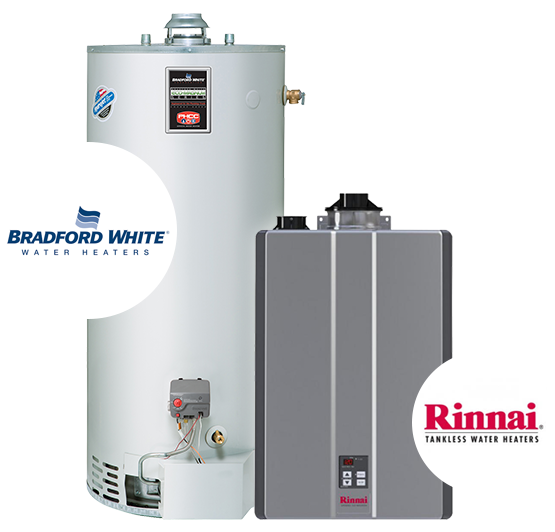
Want to replace your tankless water heater in Seattle? Our Seattle tankless water heater installation service is available when you require a new water heater or your outdated one needs to be replaced. Any tankless water heater can be installed by us, and we’ll make sure it’s done properly and professionally.
We evaluate your requirements to identify the ideal water heater for your home as the first stage in our installation process. We’ll consider your home’s size, the number of occupants, how much water you use, and any other relevant factors when determining which water heater is best for you.
After determining the ideal water heater, we’ll thoroughly check your home’s plumbing to ensure everything is in working order. This is crucial since installing a tankless water heater can be trickier than installing the conventional tank water heater.
We’ll start working on installing your new water heater once the plumbing in your home has been examined. To make sure your water heater is installed correctly and securely, we’ll adhere to all manufacturer guidelines.
We’ll test your new water heater after installation to make sure it’s functioning properly. We’ll also show you how to use it and take care of it so that it works well for many years to come.
Call our staff at Seattle Water Heaters right now if you live in the Seattle region and require assistance installing a tankless water heater. We can assist you in finding and installing the ideal water heater for your residence or place of business.
What Is a Tankless Water Heater?
A tankless water heater is a type of water heater that heats water directly without using a storage tank. It instead heats water as/when needed. This indicates that a tankless water heater can help you save both space and electricity.
Both electric and gas tankless water heaters are available. Although gas models cost more up front, they are typically more economical and efficient over time. Though initially less expensive than the gas ones, electric tankless water heaters may not be as efficient.
Your hot water requirements should be taken into account when looking for a tankless water heater. You should pick a tankless water heater that is large enough to meet your demands since they come in a variety of sizes. You should also take your local climate into account. Because they rely on the temperature of the surrounding air to heat the water, tankless water heaters are less effective in colder climates.
A tankless water heater can be an excellent choice for you if you want to reduce your energy costs. If you’re looking for ways to cut costs, tankless water heaters are absolutely something to think about since they can reduce your energy costs by up to 50%.
When looking for a tankless water heater, there are a few factors to bear in mind. First, confirm that the model you select has received an Energy Star certification. With this certification, the appliance would have proven that it meets rigid standards for energy efficiency.
Second, there are two types of tankless water heaters: electric and gas.
-
Gas-fuelled tankless water heaters
You’ll have to think about another thing if you’re considering gas-powered heaters. The gas heaters come in two different varieties. One is powered by natural gas, while the other is powered by propane. The only major distinction between them is the type of gas used, which makes them both remarkably similar. Since a gas heater doesn’t require electricity to operate, they can be quite inexpensive to operate. Once it is installed, you merely need to continue paying for petrol. If you choose gas tankless water heater installation, you will simply need to refill the gas on a regular basis.
Large households benefit the most from a gas tankless heater. For a large household, the ability of gas tankless water heaters to supply eight to ten gallons of water every minute is crucial.
-
Electric tankless water heaters
An electric tankless water heater is exactly what it says it is. Instead of gas, electricity is used to power it. The main distinction between gas and electric tankless heaters is actually just that.
In actuality, an electric heater is much less expensive than a gas heater. They are less expensive to install and maintain. You won’t need to worry about regularly checking filters, you’ll only need to make sure it’s clean and functioning two or three times a year. They are actually quite environmentally friendly and less messy because they don’t release any harmful gasses into the air (at least not in your surrounding air).
The decision to select one of the two is ultimately up to you. It all depends on how much money you are willing to spend and how strongly you prefer one over the other. The installation of a tankless hot water heater is simple for a water heater installer to carry out, and both types are incredibly simple to maintain. Either of them would be a great option.
Third, make sure you check the reviews before purchasing a tankless water heater. Tankless water heaters come in a wide variety of brands, so you should be careful to pick one that has received positive feedback from other buyers.
Finally, pay close attention to the instructions when installing a tankless water heater. Future issues could result from improper installation of the unit. If you are not confident performing the installation yourself, be sure to hire a professional.
You can be sure that you will be able to find the best tankless water heater for your home by following these suggestions. Before making your final purchase, make sure you do your homework and read the reviews. In this way, you can be certain that you are purchasing a high-quality product that will last for many years.
Tankless Water Heater Installation Cost
If you’re thinking about installing a tankless water heater in your home, you’re undoubtedly wondering how much it would cost you. The type and size of the unit, the difficulty of the installation, and whether you need to make any modifications to your home’s electrical or plumbing systems can all affect the price of a tankless water heater.
The cost of installing a tankless water heater is about $2,500 on average. The units themselves typically cost between $1000 and $2,500 depending on the model, with installation adding another $500 to $2,000. On the other hand, the overall cost for large or specialized units might be as high as $6,000.
Cost by fuel sources
The fuel type is the first decision you’ll need to make when thinking about tankless water heaters. Here are some potential fuel options and their associated costs:
-
Electric tankless water heaters
Due to their simplicity of installation and maintenance, these are the most common options. They are widely accessible in small sizes, but it is uncommon to find electric models large enough to heat the water for a house with five or more bedrooms. The cost of an electric tankless water heater unit ranges from $500–$1,500.
-
Tankless natural gas water heaters
These options are also widely used, but they are a bit more labor-intensive to install than electric types. They are suitable for large homes and cold locations because they can handle far more gallons of water per minute. The cost of a natural gas tankless water heater unit ranges from $750–$2,000.
-
Propane fuel
Most tankless water heaters configured to run on natural gas may employ propane as a fuel source, though they could need a converter. There are also appliances manufactured expressly for propane, which is frequently the fuel of choice for homes in more remote areas. The cost of a profane fuel tankless water heater unit ranges from $500–$2,000.
-
Solar-powered tankless water heaters
These eco-friendly types are the most expensive to install and maintain, but they have the lowest operating expenses because they are powered by the sun. These are especially useful in sunny climates, as one might guess. The cost of a solar-powered tankless water heater unit ranges from $1,500–$4,000.
Note that the water heater costs above do not include the cost of an installation service.
Cost of tankless water heaters by size
The next step is to determine the size of the tankless water heater you want. A point-of-use unit (which heats water for a single appliance) or a whole-home unit are your options. Single-point units are substantially more affordable because they are much smaller. Since the hot water doesn’t need to travel as far, they are also more efficient. However, you’ll need to purchase one for every water source that requires heating.
Hot water flow rate is expressed in gallons per minute (GPM) for all tankless water heaters. Showerheads and washing machines normally require two to four GPM, although faucets and dishwashers may typically be heated comfortably with a one to two GPM unit. A modest, one-bedroom home may only require a whole-home unit of two to three GPM, whilst bigger homes will require units of up to ten GPM.
- 1–2 GPM $150–$250
- 2–3 GPM $200–$600
- 3–4 GPM $300–$700
- 5–6 GPM $400–$1,200
- 7–8 GPM $500–$1,500
- 8+ GPM $600–$2,000
- Point-of-use $150–$500
- Whole-home $500–$2,000
Professional Tankless Water Heater Installation
While installing a point-of-use electric heater on your own may be possible, a professional water heater installer is required to install whole-home and gas-powered heaters. Professional plumbers are trained to operate on both gas and water pipelines, so they will be able to install everything safely.
A plumber will also make sure that the installation complies with regulations on things like carbon dioxide emissions and thermal regulation. Installing a water heater can take two to ten hours, depending on its complexity and the type, and plumbers normally bill between $75 and $150 per hour.
| Type | Labor costs |
| Natural Gas | $900 – $1,500 |
| Propane | $900 – $1,500 |
| Electric | $150 – $1,000 |
| Solar | $2,000 – $4,000 |
Tankless water heater conversion costs
You should hire a plumber to convert your system if you currently have a traditional tank water heater and wish to upgrade to a tankless one that is more energy-efficient. Since the old system must be dismantled and all plumbing brought up to code, conversion costs are comparable to those of installing a brand-new tankless water heater. The cost is typically between $1,200 and $4,000.
Factors include: New heater ($500 – $2,000), Installation service ($500 –$2,500) Removal/disposal of old tank ($100 – $500), Permit ($25 – $250), New electrical outlet ($150 – $300), Upgrading gas lines ($350 – $750), Updating plumbing ($100 – $500).
Cost factors to consider
Here are some additional elements that can affect the installation’s final cost (in addition to the fuel type, brand, and size of your tankless hot water heater).
-
Venting
Every heater that runs on gas or propane needs to vent its exhaust. This can happen by using a direct vent, which draws cool air inside and exhausts heat outside via a chimney or vertical pipe. An alternative is a power vent system, which uses a fan to force exhaust through a horizontal pipe while drawing air from inside. Power vent water heaters can be fitted in a few more locations than a direct throughout the house.
-
Permits
A permit may be required to install a tankless system, especially if it is being located outside. This is typically taken into account in installation estimates.
-
Non-condensing vs condensing
Condensing tankless water heaters often cost more up front, but by recapturing and utilizing the exhaust heat in a second heat exchanger, they provide additional energy savings. The efficiency of non-condensing units is around 17% lower and they only have one heat exchanger.
-
Tax credits
Gas or propane tankless water heaters with an Energy Star rating and an energy factor of 0.82 or higher are eligible for a $300 federal tax credit. Additionally, you might be qualified for state tax benefits or refunds.
-
Location
Tankless water heaters can be installed indoors or outside depending on their design. Outdoor units are more space-efficient and don’t need as many wall modifications (thus less expensive to install), but any outdoor water pipes need to be carefully insulated, and these units might perform less well in cold areas.
-
Hard water
If you live in an area with hard water, you should consider installing a whole-home water softening system if you don’t already have one because tankless types are more susceptible to mineral accumulation than tank water heaters.
Installation of Tankless Water Heaters
Tankless water heater installation is a big task, but it is unquestionably worthwhile. You’ll have an unending supply of hot water in addition to spending less on electricity costs. Here are certain installation-related details you should be aware of.
Choosing the ideal spot for your tankless water heater is the first step. It ought to be close to the areas where you will use it the most, such as the sink in your kitchen or bathroom. Additionally, you should make sure that there is sufficient room around it for adequate ventilation.
The next step the installation of the appliance itself after finding the ideal position. Depending on the tankless water heater model you have, there may be a different procedure, although most units require wall mounting. Make sure you strictly adhere to the manufacturer’s directions.
Connecting your tankless water heater to your home’s water supply comes after it has been installed. Although this procedure is typically quite straightforward, you should make sure that you are familiar with each step before moving forward. Once everything is connected, test the device to make sure everything is operating as it should.
You may now enjoy unlimited supply of hot water in your home now that you have successfully installed a tankless water heater. The hot water won’t run out in the middle of your shower again! Additionally, you’ll enjoy monthly cost savings on your energy costs. So why are you still waiting? Start your tankless water heater shopping right away!
We provide expert tankless water heater installation
Seattle Water Heaters can assist if you’re not quite ready to install a tankless water heater yourself. There are several companies available that can handle it for you. However, if you don’t do your research and pick a reliable firm, like Seattle Water Heaters, you can get a unit that doesn’t function correctly or one that fails soon after installation. Since tankless water heaters are an excellent investment, call us first so that we can fully inspect your house or place of business and take the time to find the best water heater solution for it. Trust us and get the job done right the first time!
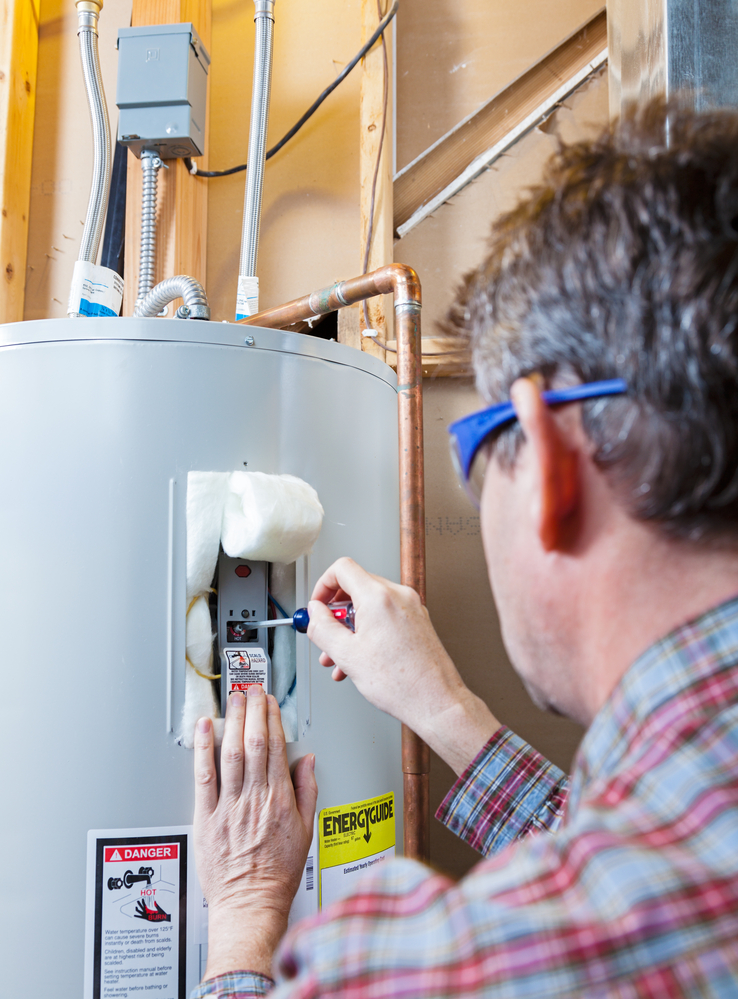
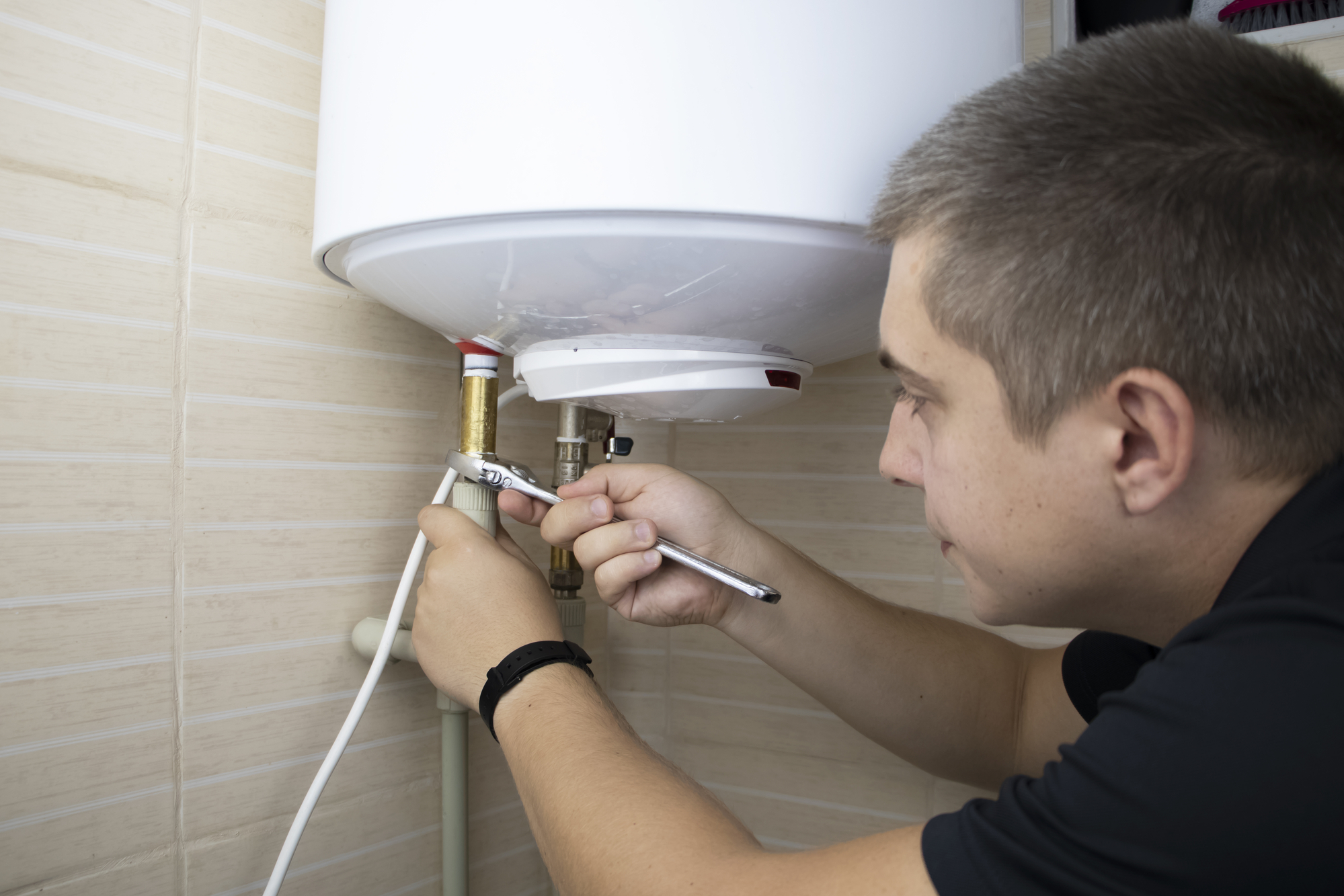
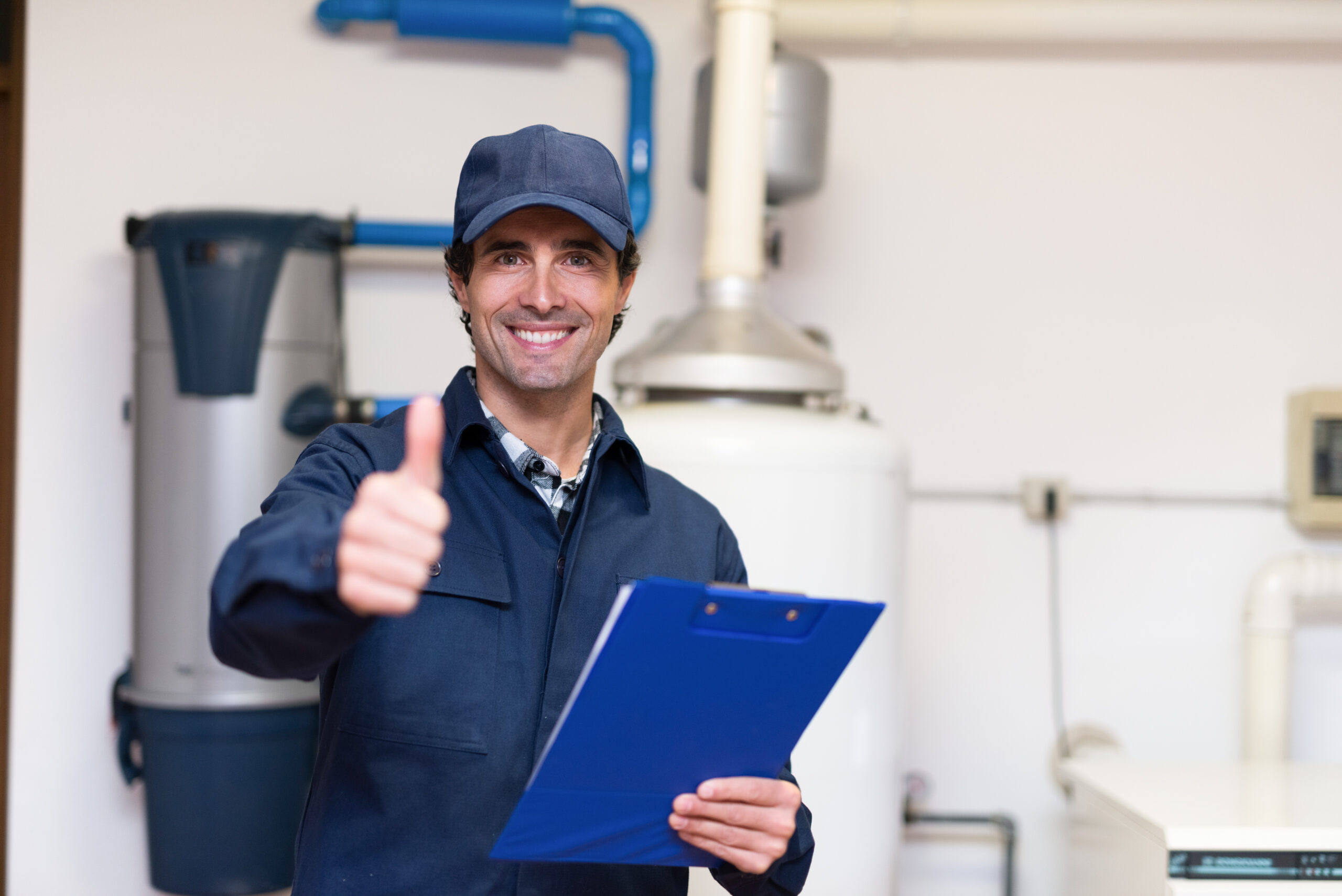
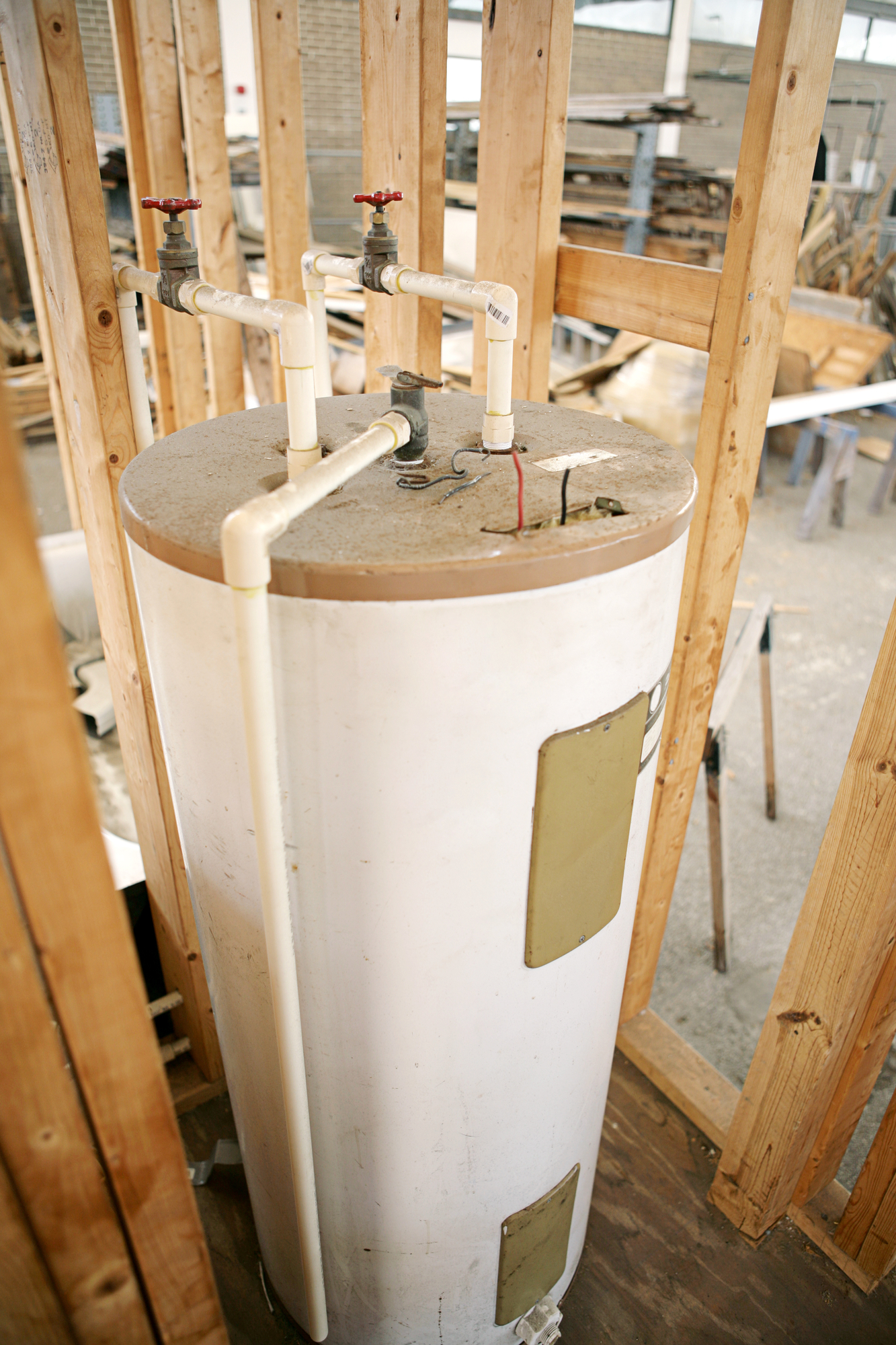
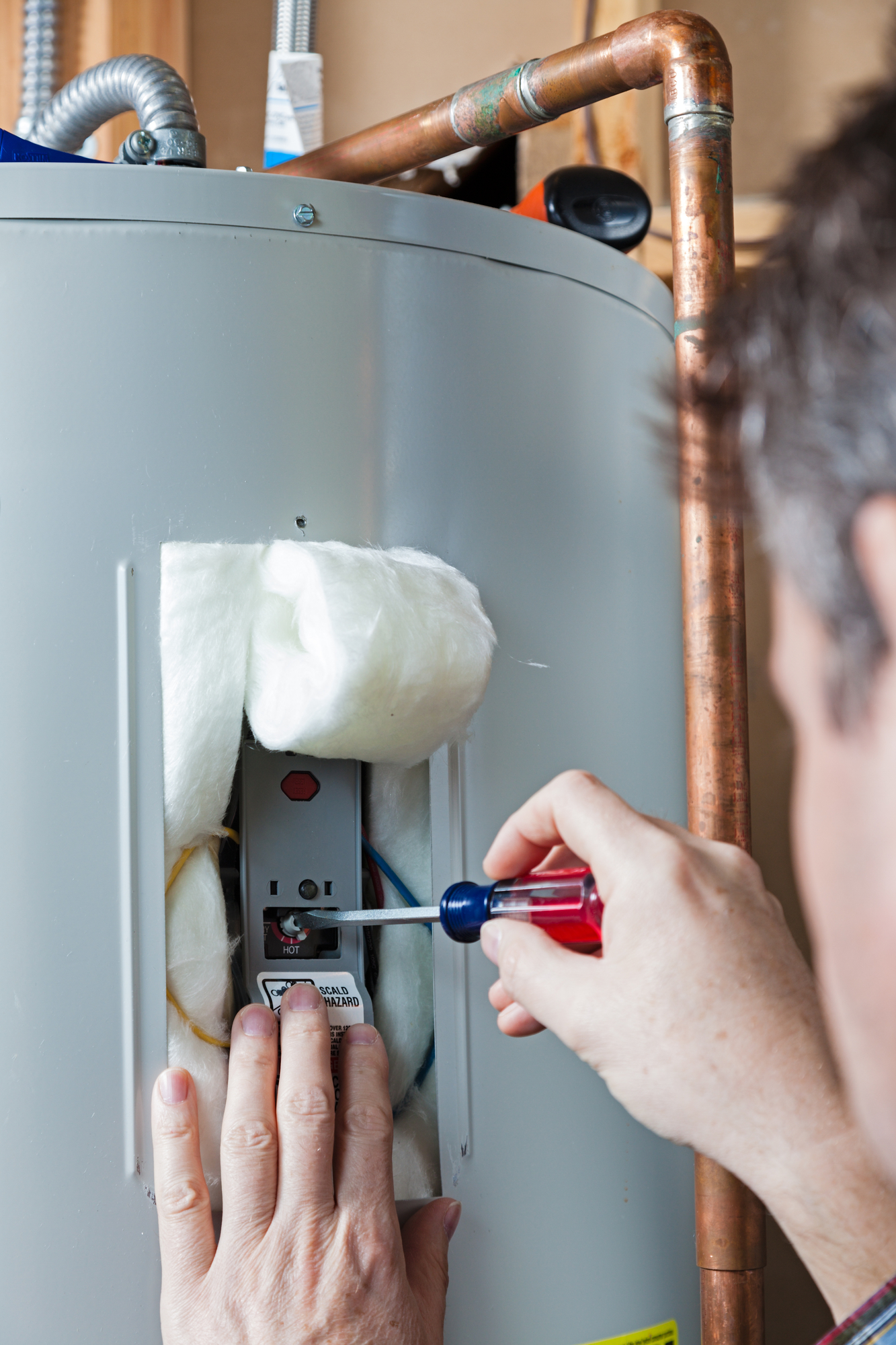

Tankless Water Heater Repair and Maintenance Services
Your tankless water heater is most likely the most heavily used appliance in your home. Unfortunately, until something goes wrong, it’s not often thought of. You won’t be able to overlook your water heater any longer if it stops operating, overheats or under-heats your water, produces odd noises, or delivers hot water that is odorous or discolored to your sink or shower.
We at Seattle Water Heaters are aware of how crucial hot water is to you and your loved ones. That is why our professionals specialize in the maintenance, repair, and replacement services required to keep your water heater in top functioning order. Your local Seattle professionals will provide services intended to extend the life of your tankless water heater model and fix it if it’s broken.
Issues with tankless water heaters
Even a tankless water heater that is regularly maintained will eventually develop an issue. It’s crucial to understand how to spot problems and when to have them repaired.
-
Mineral deposits
Minerals accumulate in your tankless water heater more quickly in a hard water environment than they would in a soft water environment. The high mineral content of hard water causes this accumulation to happen. Your tankless water heater won’t operate properly if you don’t swiftly fix a mineral accumulation issue.
Flushing your tankless water heater twice a year and frequently cleaning the filter will help prevent excessive mineral build-up.
-
Visible corrosion
Near the gas burner, moisture can accumulate over time and cause corrosion, which might result in a gas obstruction or leaks.
-
Overload & maximum capacity
It’s crucial to refrain from using numerous hot water-dependent appliances at once, such as the dishwasher, washer, or shower. Your tankless water heater may become overloaded if you use a lot of appliances at the same time. A system overload stops your water heater from producing enough hot water to suit your needs.
Tankless water heater installation and repair services are provided by our team of licensed plumbers in King, Snohomish, and Pierce counties. Our professionals will work with you to find a replacement system that will satisfy your needs if your current tankless water heater is not giving you enough hot water. In order to make up for an insufficient supply of warm water, you can also invest in a second tankless system.
-
Overheating
The two most frequent causes of water heater overheating are: a.) an obstruction in the way of airflow through the vent or exhaust; and b.) a temperature sensor issue. Both can be readily repaired.
-
Ignition failure
Your gas tankless water heater’s ignition may not be lighting if you aren’t getting any hot water. Your water won’t heat up if it isn’t functioning properly.
Verify that your propane tank is not empty before trying any other solutions to the problem. Next, ensure the valves for your gas and water are fully open. After completing those steps, if your water still isn’t heated, speak with an HVAC expert to determine the issue. The technician may have to install certain tankless water heater parts or perform some tankless water heater repairs.
What kind of maintenance is necessary for a tankless water heater?
Every year, tankless water heaters need to be flushed. We advise flushing your water heater every six months for homes with hard water. You can save money on future repairs or replacements by doing annual maintenance.
Is it Worthwhile to Purchase a Tankless Water Heater?
When deciding whether or not to purchase a tankless water heater, there are numerous aspects to take into account. Tankless devices often have a longer lifespan and use less energy than conventional water heaters, but the initial cost of the appliance is frequently more. Additionally, tankless water heaters deliver hot water continuously, so you never have to be concerned about running out during periods of high demand.
Your home’s location is another important issue to take into account. It’s vital to remember that tankless water heaters need more frequent maintenance if you reside in a region with cold winters in order to prevent freezing. However, a tankless water heater might be a terrific investment for your home if you’re ready to put in the extra work.
So, is purchasing a tankless water heater worthwhile? The choice ultimately boils down to personal preference and your particular requirements (and of course, your current budget). A tankless unit can be the best option for you if you’re looking for an energy-efficient solution to heat the water in your house. A standard water heater might be a better choice, though, if you’re unwilling to put in the extra work needed for maintenance and if you do not have money for a bigger investment. Whatever choice you make, make sure to conduct thorough research and evaluate several models before making a purchase. You can select the ideal water heater for your house with a little bit of work.



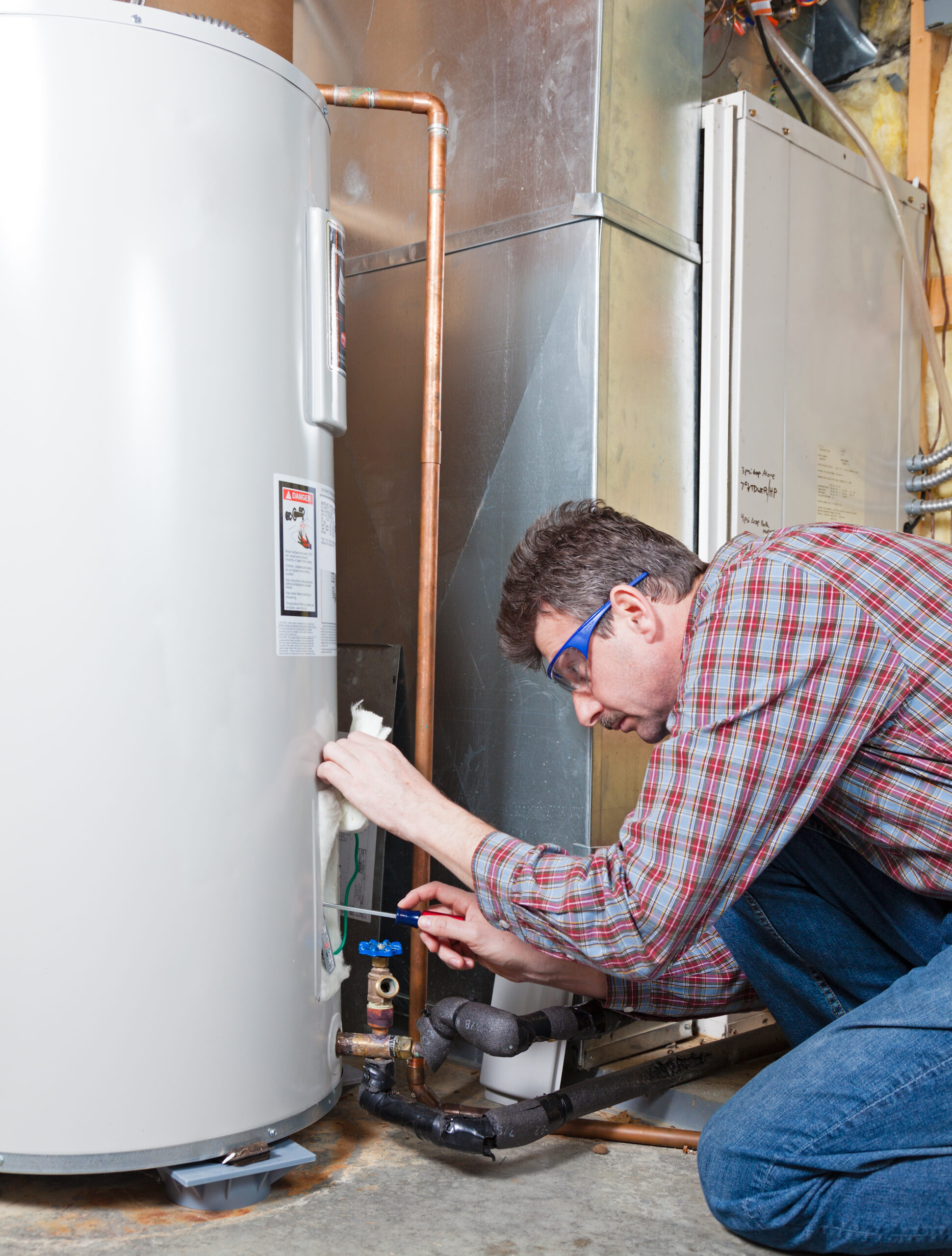
Can I Replace My Tank Water Heater with a Tankless one?
Absolutely! In fact, because of their energy efficiency, tankless water heaters are starting to become the norm for newly built homes. In comparison to a standard tankless water heater, which has a value of 0.94, newer tank water heaters have a Uniform Energy Factor rating of 0.70. Over the past few years, standard tank water heaters have made some progress in terms of their energy efficiency rating, but as you can see, they still have a long way to go before they can match the efficiency of a tankless water heater, and quite frankly, they will never be as good as the tankless model. This is simple because your tankless water heater only heats water when it is needed, in contrast to tank water heaters, which continuously heats and reheats 40 to 75 gallons of water.
There are a few factors to think about if you’re thinking about switching from your old tank water heater to a new tankless type. First, make sure the unit is the right size. A tankless water heater with at least 200,000 BTUs is necessary for the majority of households. When making your choice, be sure to take installation costs into account as well; tankless water heaters often cost more to install than conventional tank water heaters.
The flow rate is yet another vital factor. The amount of hot water that is continuously available from tankless water heaters varies based on the product. Make sure the unit you select can supply enough hot water for your house.
Remember that tankless water heaters require more maintenance than conventional versions as a last point. The good news is that you can anticipate getting a lot of use out of your investment because they normally have longer lifespans.
A tankless type might be the best option for you if you’re considering replacing your old water heater. To select the best choice for your house, keep these factors in mind.
Seattle Water Heater’s team of professionals is available to assist you if you have any questions. Simply fill out the contact form with your inquiry or give us a call, and we’ll get back to you as soon as we can.
How Long Does a Tankless Water Heater Installation Take?
It actually depends on the particular tankless water heater type and manufacturer you select. These heaters are typically more difficult to install than the tank water heater. The majority of tankless water heaters require roughly four hours of installation time; however, installation timeframes can range from two to eight hours. Ask the professional installer you hire about their level of experience and the anticipated installation time. One of the main reasons for tankless water heater issues is improper installation.
You might be able to install a tankless water heater yourself if you’re handy and have a basic understanding of plumbing. Before attempting this, be sure you carefully read the manufacturer’s instructions. If you have any questions, you should also always seek the advice of a specialist. An improper installation could void your guarantee and potentially harm your home. Therefore, if you don’t feel competent enough to complete the installation, be sure to contact a professional installer.


For How Long Do Tankless Water Heaters Last?
As with any appliance, a tankless water heater’s lifespan will be influenced by a variety of elements, such as the quality of installation, maintenance and care (or lack thereof), as well as the quality of the local water supply. However, most tankless water heaters can survive up to 20 years or longer with proper installation and maintenance. In fact, many manufacturers provide tankless units with extended warranties that last 10 years or longer.
It’s crucial to remember that while tankless water heaters have a significantly longer lifespan than conventional storage tank water heaters, they might not be appropriate for every home or application. Homes with a high hot water demand, for instance, can need more than one unit or a unit with a capacity that is more than what is generally used in domestic applications. In addition, hard water conditions can reduce a tankless water heater’s lifespan by generating mineral build-up on critical parts. It’s important to check with a licensed plumber to be sure a tankless water heater is suitable for your home before making a purchase.
Can a Tankless Water Heater be Installed Anywhere?
A tankless water heater can technically be installed just about any place in your house where there is access to a water line. Before doing so, there are a few things you should bear in mind. Tankless water heaters must, for starters, be located close to an electrical outlet (for the electric-powered types). They must also be positioned in areas with sufficient ventilation. This is so that combustion gasses produced by tankless water heaters can be appropriately vented.
Therefore, even though a tankless water heater can technically be installed anywhere in your house, it’s crucial to keep these points in mind to ensure proper installation and function.


How is a Tankless Water Heater Vented?
Numerous issues can arise if the venting of your tankless water heater is done properly. Your water won’t be as hot as it ought to be, and you might even notice leaks or unusual odors. Fortunately, there are a few things you can do to properly vent your water heater and fix the issues.
Checking the exhaust vents is the first thing you should do. Usually found on the side of the appliance, these can become blocked with lint or other debris. Simply clean out the vents if you find that they are blocked and check to see if the issue is resolved.
You might need to replace the entire venting system if the vents are clear but the problem still remains. Although it is a very simple procedure, you should check your owner’s handbook to make sure you have the right parts.
Check all of the seals and gaskets surrounding the unit after replacing the venting system. Damage to any of them could allow hazardous gasses to escape, posing a major risk to one’s health and safety.
You might need to contact a specialist if you’ve tried everything and the issue persists. Tankless water heaters are intricate appliances that may need specialized equipment or knowledge to fix correctly. By hiring a professional, you can be sure that the work is done right.
How Can I Determine the Size of Tankless Water Heater That I Require?
Which size is best for your needs should be one of your first considerations if you’re thinking about a tankless water heater.
The following things should be taken into account when choosing the size of your tankless water heater:
- How many bathrooms you have in your house
- How many people live in your home
- The typical flow rate of your appliances in gallons per minute
- If you possess any high-demand appliances, such a Jacuzzi or spa
Start by estimating the peak demand flow rate to find the optimal size tankless water heater for your home. The peak demand flow rate is the maximum amount of hot water that your house will use at any given time. Add together the flow rates of all the appliances that will be simultaneously using hot water to get this.
For instance, if you have a shower with a flow rate of 2 GPM, a washing machine and dishwasher with flow rates of 1.5 GPM, your peak demand flow rate would be 5 GPM.
To choose a tankless water heater that can suit your needs, compare your peak demand flow rate to the flow rates of several tankless water heaters. A 5 GPM tankless water heater would be adequate for the aforementioned case because most tankless water heaters have a maximum flow rate between 5 and 8 GPM.
Consult a plumber or HVAC specialist if you’re still unsure of the tankless water heater size that’s best for you. They can assist you in figuring out your peak demand flow rate and suggest a tankless water heater that will work for you.
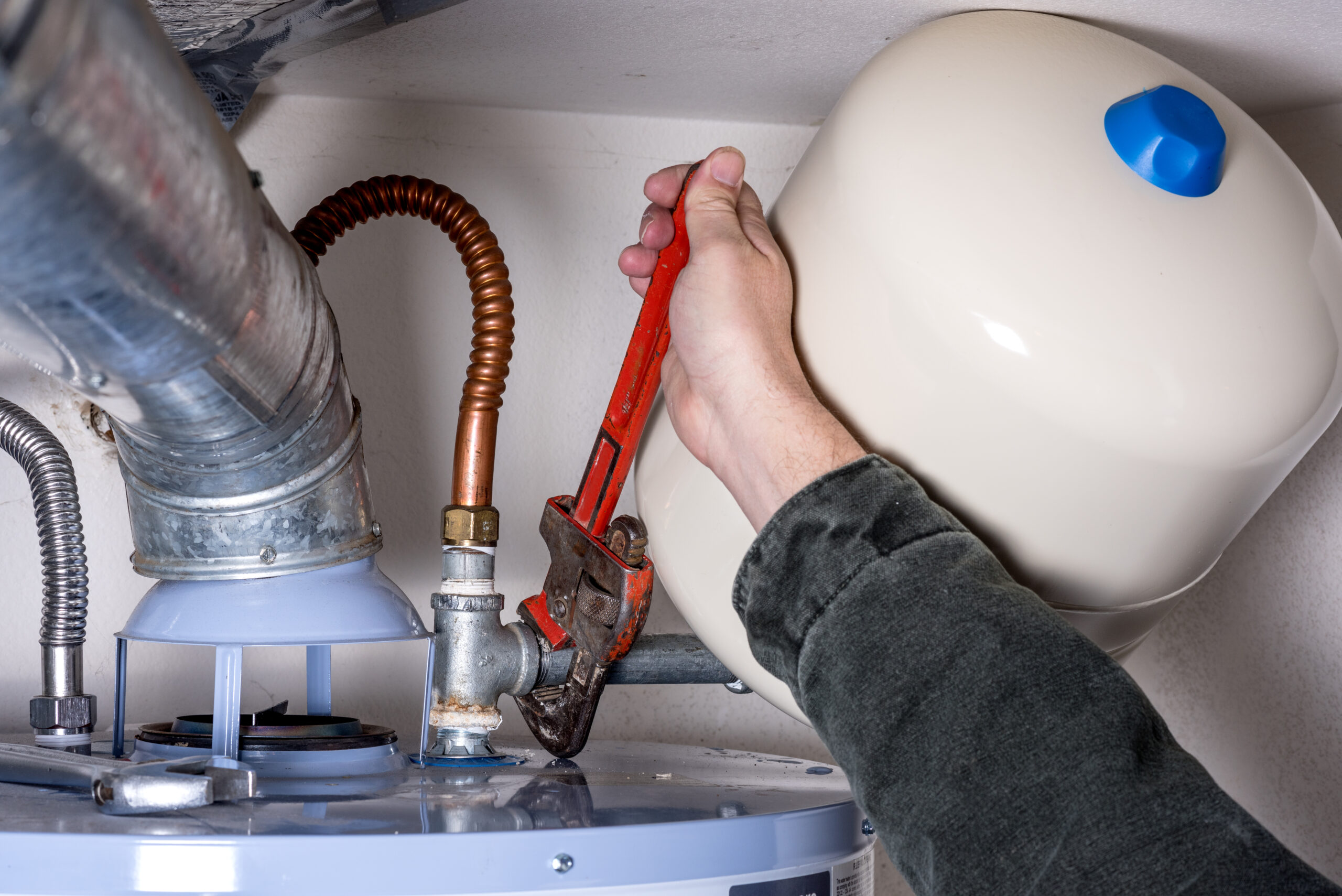


A Tankless Water Heater Requires How Much Space?
How much room is needed for a tankless water heater is likely another concern you have if you’re thinking about making the switch.
Although tankless water heaters are smaller than conventional storage tank water heaters, they still require a small amount of space to be installed correctly. You can use this fast approach to determine how much room you need for a tankless water heater.
You must first choose the location where your new tankless water heater will be installed. It might, for instance, be fixed on a wall outside or inside a closet. Measure the space’s height, width, and depth after selecting a location to ensure that your tankless water heater will fit.
The next thing to think about is ventilation. Tankless water heaters need to be able to discharge their exhaust gasses outside and have a source of fresh air. Make sure there is enough air if you’re installing your tankless water heater in an interior closet so that it won’t overheat and shut off.
The installation of a gas line and a water supply line is the last step. If you’re confident working with basic plumbing, you can complete these tasks yourself otherwise, hire a professional plumber or handyman. Turn on the power and test out your new tankless water heater once everything is connected.
What Gas Line Size is Required for a Tankless Water Heater?
You’ll need to know the tankless water heater’s BTU rating and the intended flow rate in order to determine the size of the gas line required. The unit’s maximum heat output is indicated by its BTU rating, and the desired flow rate indicates how much water you want to be able to move through it in a given amount of time.
Use the following formula to determine the size of the gas line required:
Size of gas line required (in inches) = (BTU rating of unit) / (1000 x desired flow rate)
For instance, you would require a gas line with a minimum (approximate) diameter of 1 inch if your tankless water heater has a BTU rating of 200,000 and you desire a flow rate of 4 gallons per minute (The flow rate is converted to gallons per second for the calculation).
Before installation, it is usually better to seek advice from a professional if you are unsure of the size of gas line you require. Gas pipes that are too small might be harmful and interfere with your tankless water heater.
Also depending on the type, you’ll need a different size gas line for your tankless water heater. The majority of models call for a 3/4-inch gas line, while some call for a 1-inch gas line. To be certain, consult your owner’s manual. Ask a plumber or the store where you purchased your heater for assistance if you are unsure about the size you require.


